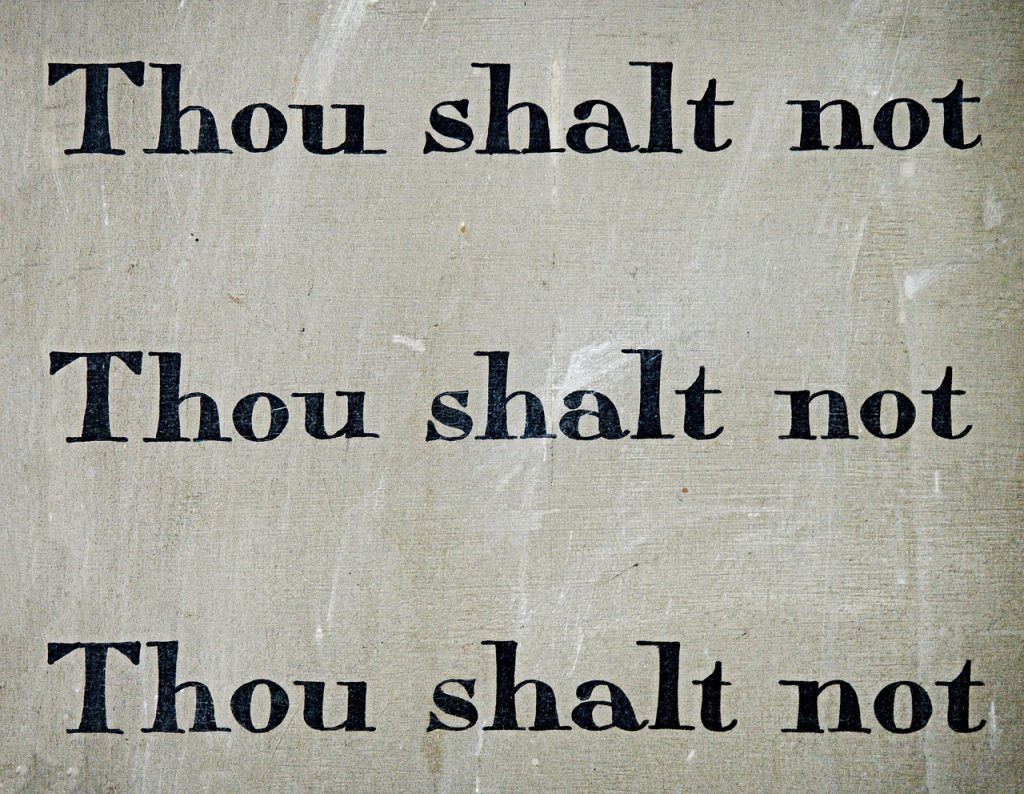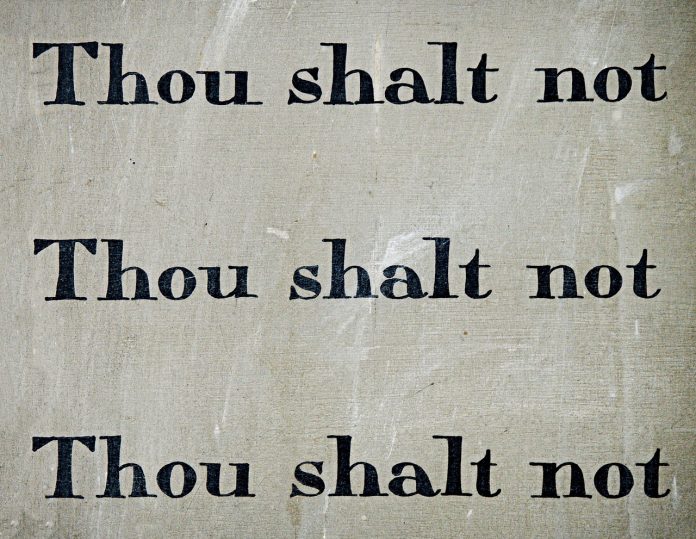RETURN OF THE CULTURE WARS: I love Jesus but some of his fan clubs freak me out
by Angelina Spencer-Crisp, ACE National Executive Director

In a high-profile Senate Judiciary Committee hearing, top executives from major online platforms including Meta, TikTok, and others, faced intense scrutiny over their efforts to protect children from online harms.
The hearing, marked by emotional testimonies, centered on accusations, particularly by Senate Majority Whip Dick Durbin, that these platforms are not doing enough to shield users from adult content, unrealistic beauty standards, cyberbullying, and instances leading to suicide or self-harm.
The event was emotionally charged as parents displayed photos of their children, while others expressed dissatisfaction toward the CEOs through boos and hisses.
TikTok countered that it has proactively supported legislation barring minors from social media accounts and has already restricted users under thirteen from its app.
Meanwhile, the platform X, formerly known as Twitter, declared its non-focus on child audiences.
Consequently, Meta faces numerous lawsuits from multiple states, accusing it of deliberately addicting children to its platform and failing to safeguard them from online predators.
What does any of this have to do with adult clubs? Plenty.
Today’s legislative landscape is rapidly unfolding, with nearly half the U.S. states introducing bills to hold website owners civilly liable if parents believe their child was harmed by online content—and this includes adult entertainment websites.
A notable example is West Virginia’s HB 4867, driven by freshman Delegate Geno Chiarelli, a devoted member of the New Columbia Movement.
The New Columbia Movement is a patriarchal religious fraternity (no women allowed), which believes:
“Postmodern society is rife with assorted degeneracies that not only threaten the stability of the nation and the wellbeing of the people, but they offend God…homosexuality, sexual liberation, pornography and widespread drug use are severe threats that must be dealt with if we are to even begin to rein in our collapsing civilization.”
Last year, Chiarelli introduced legislation outrightly banning all forms of adult entertainment in his state.
HB 2919, dubbed the “Sexually Oriented Businesses Regulation Act”, targeted those that sell adult content, “instruments, devices or paraphernalia,” and “adult cabaret, or clubs, nightclubs, restaurants or other businesses that show performers nude or seminude, and adult arcade businesses.”

Chiarelli’s legislation failed to pass. His latest attempt echoes similar age verification legislation promoted nationwide by religious extremists. It highlights a broader cultural (and legal) battle over what some claim is objectionable content.
Furthermore, the Idaho House State Affairs committee followed Virginia’s lead by unanimously forwarding its copycat version of online age verification.
Rep. Elaine Price (R-Coeur d’Alene), the bill’s sponsor, told an NPR affiliate, “We have a constitutional duty to protect virtue and sobriety and promote temperance and morality.”
Price also supports tax-payer funding for mandatory Christian religious education in all schools, public or private, and hopes for a complete U.S. ban on alcoholic beverages.
Religious activists appear to be taking a divide-and-conquer approach to achieve their goals. They separately attack social platforms, alcohol establishments, and website operators, in addition to adult entertainment. And they add more than a pinch of flawless PR and branding to their attempts. They conceal or deny their intended goals of a utopian (or perhaps dystopian) society run under a largely oppressive and subjective interpretation of rules.
It is a perfectly coordinated and orchestrated effort to reign in what extreme activists claim is a degeneration of American society.
Some of these efforts include targeting adult clubs with proposed age restrictions for workers (no 18-20 year-olds allowed in any capacity), as seen in Texas, Louisiana, and now Florida.
Additionally, the introduction of Community Defense Acts, passed in Ohio and Missouri, and more recently introduced in Kansas and New Jersey (11 pm closure and no tipping), are a small part of its overall, and much larger, strategy.  These groups often compose model policy for staffers and legislators, which is passed around the country. Moreover, religious activists contribute heavily as a group to election campaigns—and they successfully encourage their audiences to vote.
These groups often compose model policy for staffers and legislators, which is passed around the country. Moreover, religious activists contribute heavily as a group to election campaigns—and they successfully encourage their audiences to vote.
Consequently, some of their legislation includes leveling ‘SOB’ patron fees to combat sex trafficking, as happened in Georgia and Texas (Florida’s SOB fee legislation failed to pass three times).
And just a couple of days ago, Kentucky introduced legislation that requires all adult businesses to be 933 ft. away from any daycares or churches.
Adult-entertainment zoning isn’t unusual. What raises eyebrows in Kentucky is that Senate Bill 147 grandfather’s existing clubs—but only for five years. This means establishments would have to move and then go through the entire licensing, permit, and approval process all over again.
The given reason for Kentucky’s legislation is thus: “adult-oriented businesses as a category of commercial use, are associated with a wide variety of adverse secondary effects, including crimes against persons and property, human trafficking, prostitution, potential spread of disease, lewdness, public indecency, vulgarity, weakening of public morality, obscenity, illicit drug use and drug trafficking, negative impacts on surrounding properties and their value, urban blight, litter, and sexual assault and exploitation.”
While proponents of these measures argue they are necessary for combatting issues like sex trafficking or negative secondary effects, critics point out inconsistencies in data or evidence, and question the efficacy of such age restrictions, or other potentially overreaching legislation—and the ulterior motives behind them.
Others grow concerned about the negative impacts on freedom and the chilling aspects of expression. And judges, who are typically appointed and sometimes voted into office, and who oversee these types of cases, typically tow party lines when it comes to rendering opinions.
Extreme religious activists, often seen as self-appointed or self-described moral guardians, continue to push for an America aligned with fire-and-brimstone beliefs.
Their less vocal counterparts caution reserve and a more benevolent Christian focus. The Citizens for Community Values, once a bastion of anti-adult entertainment law, was excoriated years ago by its members. They cited a lack of compassion, non-judgment, and a failure to do more to help the poor or disadvantaged, through legislation. Unfortunately, voices of reason are often drowned out by boos and hisses.
Groups such as the Family Research Council, The New Columbia Movement, and the Christian Coalition, push for extensive regulation of any sensual expression. This includes banning books they deem sinful, implementing dress codes, limiting access to birth control, no abortion, a return to traditional gender roles under patriarchal religion, abstinence outside marriage, a ban on gay marriage, and in some cases, restricting women from working outside the home.
They also expect to extract heavy punishments through their legislation, with criminal charges, incarceration, and/or excessive fines and fees.
Ultimately, knee-jerk regulations often have unintended consequences, particularly for those whom the laws are allegedly designed to protect. Consider the impact of prohibiting individuals aged 18 to 20 from working in adult clubs, under the guise of preventing sex trafficking. Far from offering protection, such limitations may exacerbate the sex trafficking issue.  Community Defense Acts and adult age restrictions appear to disproportionately negatively impact already marginalized strippers and club workers, potentially driving a professional workforce underground or pushing adult entertainment workers onto dark web platforms. Without realizing it, legislators may be aiding and abetting a crime they hope to eradicate.
Community Defense Acts and adult age restrictions appear to disproportionately negatively impact already marginalized strippers and club workers, potentially driving a professional workforce underground or pushing adult entertainment workers onto dark web platforms. Without realizing it, legislators may be aiding and abetting a crime they hope to eradicate.
Moreover, the alternatives for these young adults are stark: they face the sudden loss of a self-sustaining income, the precarity of minimum wage, and having to navigate the risks of a shadow economy.
This tension between freedom of expression and the push for moral regulation by religious extremists underscores a complex debate at the intersection of technology, law, and cultural values.
As these battles unfold in courtrooms and legislative halls, the question of how to balance competing interests remains a key challenge for American society. For those who value the basic tenets of less government and our country’s narrow promise of the pursuit of liberty, the future appears woefully restricted.
Sgt. Matthew Crabtree of the USAF, who also managed strip clubs, made a compelling statement in 2004 while testifying in uniform against Ohio’s Community Defense Act before a judiciary committee. This testimony came just before his deployment to Iraq.
Crabtree told the judiciary chairman, “As we fight for your freedoms abroad, please do not restrict them back home.”
Amen.
This statement underscores the importance of protecting liberties on American soil while we deploy military personnel overseas to defend those exact same freedoms.





























